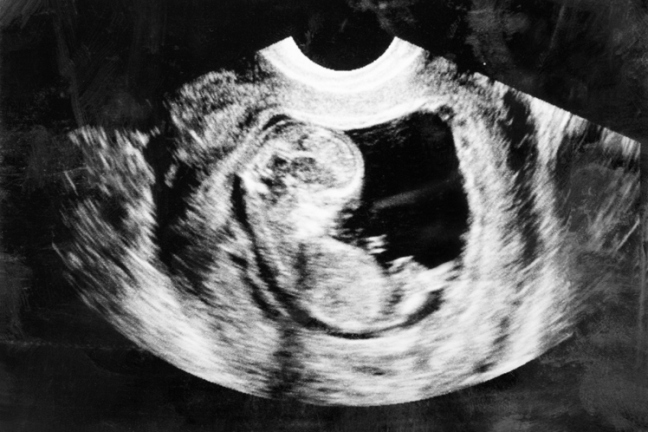Texas Gov. Greg Abbott asked lawmakers to pass a bill to ban mail-order abortion drugs and called state lawmakers back for a special session to do that. Earlier this month, the Texas Senate approved a bill to ban mail-order abortions and to put more limits on the abortion pill that is killing more and more babies in abortions every single year.
Now the state House is following suit. On a 83 to 42 vote, the state House gave 2nd reading approval to the measure.
The votes comes at a time when Texas could become the first state in America to ban abortions.
The bill, SB 4 authored by Sen. Eddie Lucio, Jr. (D-Brownsville), passed decisively on a 19-10 vote. Under the leadership of Lt. Gov. Dan Patrick, this is the third time the Senate has passed this bill, including during the regular session last spring and during each of the two special sessions this summer.
Rep. Stephanie Klick (R-Ft. Worth) has authored HB 6, the companion bill in the House.
But Democrats griped about another pro-life bill protecting the lives of unborn children.
“I’m really tired of every single session having to come here and debate one more obstacle to a woman having a right to choose what happens to her own body and her own destiny,” Rep. Donna Howard (D-Austin) told the Legislature.
But a state pro-life group applauded the House for advancing the pro-life measure.
“We strongly support the chemical abortion safety protocols in SB 4,” said Texas Alliance for Life’s executive director Joe Pojman, Ph.D. “Texas needs this bill to assure that chemical abortions are performed under the supervision of a physician and with adequate safety protocols.”
Pojman told LifeNews.com that not only do abortion pills end the lives of unborn babies but they also hurt women, as dozens of women have died and thousands have been injured.
Click here to sign up for pro-life news alerts from LifeNews.com
He said the need for this bill is demonstrated by the fact that chemical abortions result a 20% complication rate for women, four-time higher than surgical abortions, according to a highly credible study published by the ACOG. Complications include incomplete abortion resulting in baby body parts or placenta remaining in the uterus, future miscarriage and stillbirth from unmanaged Rh factor, and hemorrhaging and death from undiagnosed ectopic pregnancy.
Pojman added that the number of babies losing their lives to the abortion drug is on the rise.
Ever since the Obama-Biden administration relaxed the RU-486 safety protocols in 2016, the numbers of chemical abortion abortions have rapidly increased in Texas — from 5,000 in 2014 to 28,000 in 2020, nearly a six-fold increase. Chemical abortions now account for 53% of all abortions in Texas, according to data from the Texas Health and Human Services Commission.
“Now the Biden-Harris Administration is threatening to remove the FDA’s current in-person dispensing requirement. The physician visit is critically important for protecting the health and safety of woman at abortion facilities,” said Pojman. “Even worse, activist organizations and academic institutions are promoting mail-order abortions, without any direct supervision of a physician, putting women’s very lives at risk. For example, Project SANA at the University of Texas at Austin LBJ School of Public Affairs brazenly advocates for ‘self-managed abortions’ while several online organization will mail abortion pills on demand.”
SB 4 clarifies that only physicians may dispense the abortion-causing drugs, and the bill creates felony penalties for anyone who mails these dangerous drugs.
In his calls for the special session, Abbott called for legislation that “prohibits people from providing abortion-inducing drugs by mail or delivery service, strengthens the laws applicable to the reporting of abortions and abortion complications, and ensures that no abortion-inducing drugs are provided unless there is voluntary and informed consent.”
The abortion numbers may grow even more after President Joe Biden’s administration stopped enforcing another safety regulation on the abortion drugs earlier this year and began allowing them to be sold through the mail without the woman ever seeing a doctor in person.
Several other states also passed laws this year to address the growing problem. These includes laws to inform women of the life-saving abortion pill reversal treatment in Indiana, Louisiana, Montana, South Dakota and West Virginia, and regulations on abortion drugs that protect mothers and unborn babies in Arizona, Arkansas, Indiana, Ohio, Oklahoma and Montana.
Abortion drugs are dangerous for the mother as well as her unborn baby. In the United States, the abortion drug mifepristone has been linked to at least 24 women’s deaths and 4,000 serious complications. Risks include excessive bleeding, severe abdominal pain, infection and hemorrhage.
A 2009 study “Immediate Complications After Medical Compared With Surgical Termination of Pregnancy,” in Obstetrics and Gynecology found a complication rate of approximately 20 percent for the abortion drugs compared to 5.6 percent for surgical abortions. Hemorrhages and incomplete abortions were among the most common complications.
Texas lawmakers passed several other pro-life laws this year, including legislation to prohibit abortions once an unborn baby’s heartbeat is detectable. However, the abortion industry is suing to block the law.
ACTION ALERT: Contact Texas state lawmakers and urge strong support for the pro-life bill.








